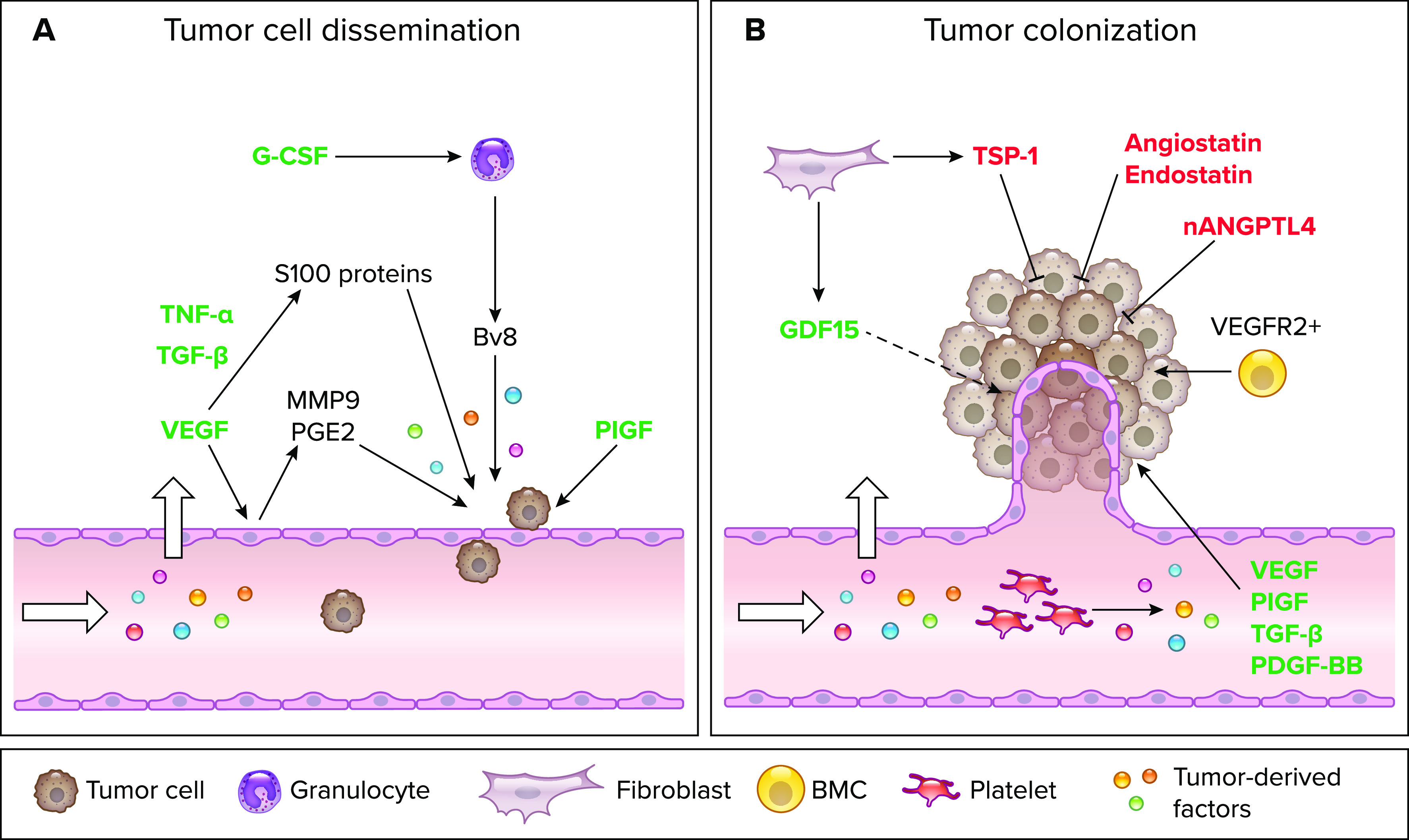FIGURE 2.

Primary tumor-derived factors affect tumor cell dissemination and colonization at distant sites A: graphical illustration of the effects of primary tumor-derived factors on endothelial cells (ECs) at the premetastatic niche. VEGF, TNF-α, transforming growth factor β (TGF-β), and placental growth factor (PlGF) act directly on ECs at the pre-metastatic niche and thereby induce EC hyperpermeability and enhance tumor cell dissemination. Granulocyte-colony stimulating factor (G-CSF) affects transmigration indirectly via expanding Ly6G+Ly6C+ granulocytes, which activate ECs by secreting Bv8. B: Schematic representation of the effects of primary tumor-derived factors on ECs at the metastatic site. VEGF, PlGF, TGF-β, and PDGF-BB are secreted by tumor-educated platelets and induce angiogenesis thereby promoting tumor colonization. VEGFR2+ bone marrow-derived cells (BMCs) are enhanced and contribute to these processes. Cancer-associated fibroblasts (CAFs) from the primary tumor secrete growth differentiation factor 15 (GDF15) and thrombospondin-1 (TSP-1), which enhance or reduce angiogenesis at the metastatic site, respectively. Molecules such as angiostatin, nANGPTL4, and endostatin are secreted by the primary tumor and directly act on ECs to reduce sprouting and thereby inhibit the outgrowth of metastatic nodules. Tumor-derived factors promoting cancer cell dissemination or colonization are depicted in green and tumor-derived factors inhibiting these processes are highlighted in red. Image was created with BioRender.com, with permission.
